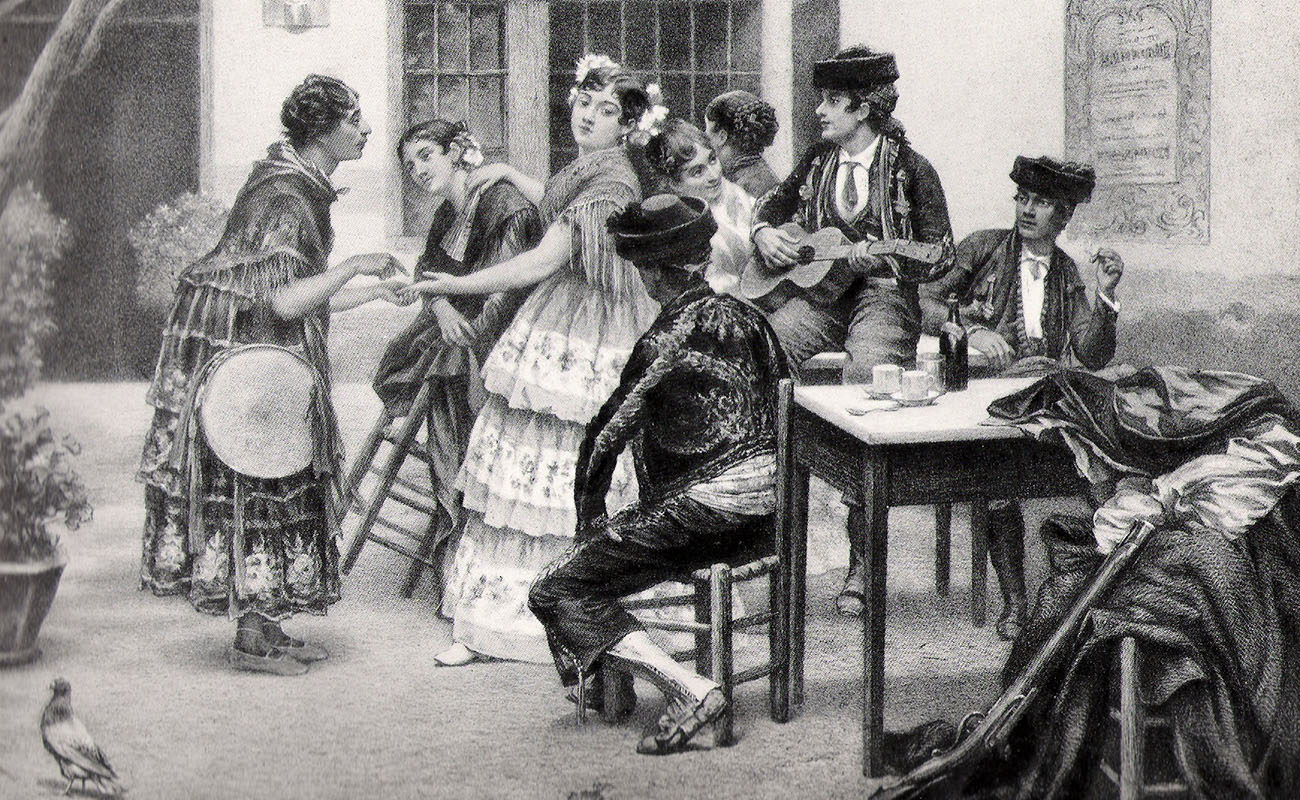It should be about singing well
Being a good singer should be what matters, regardless of the Gypsy spark, pellizco or grace. It’s shocking to see how differently are cantaores treated on account or being Gypsy or not.

Do you think that perhaps one day reason will prevail over passion? I mean in flamenco, of course. I say this because I think that, with flamenco being in the public eye for two centuries, it’s high time that we put aside passions and value the quality of what’s being done, regardless of who does it, right? I’ve been increasingly avoiding the thorny topic of Gypsies and non-Gypsies in flamenco, because history shows that flamenco has always had both Gypsy and non-Gypsy great artists. Indeed the first professionals of cante, those who were paid for singing in the bolero academies in 19th century Seville, were mostly non-Gypsy: Silverio, Lorente, Sartorio, Perea, Prado, Juraco…
They were already professionals who were paid for singing. At the same time, Gypsy cantaores and cantaoras also got paid for singing is parties, such as El Fillo, María Borrico, La Sarneta and Antonio Frijones. Flamenco wasn’t just a matter of Gypsies, no matter how often the romantic travellers went to their parties to claim later that the Gypsies of Andalusia had an art genre of their own. Even the non-Gypsy artists would claim to be Gypsy in order to be more respected, as was the case of Fernando el de Triana, who told Walter Starki that he was the son of a Roma blacksmith from Triana, when in fact he was the soon of a carpenter from the other side of Seville.
«If Gypsy cantaores are out of tune, they claim it doesn’t matter because its compensated by their duende. Yet, if non-Gypsy cantaores are out of tune and lack duende, they get scathing reviews»
There is a young cantaor nowadays, Manuel de la Tomasa, who is a descendant of the family of the renowned cantaor Manuel Torres (Gypsy) on his father side, and of the family of the celebrated cantaor Manuel Vallejo (non-Gypsy) on his mother side, yet the latter is seldom mentioned because in flamenco being a Gypsy is a selling point. It makes sense, because we cannot conceive flamenco without the contribution of Andalusian Gypsies. El Planeta, El Fillo, El Nitri, Curro Dulce, Manuel Cagancho and Joaquín el de la Paula were all Gypsies, but Andalusian Gypsies, born in Andalusia of Andalusian parents, grandparents, great-grandparents and great-great-grandparents, in most cases. Above and beyond being Gypsy, they were full-blooded Andalusian.
We have reached such level of stupidity with this topic that nowadays there are Gypsy cantaores who are terrible singers but are highly regarded solely for being Gypsy. Are they good singers or not? That should be what matters, regardless of the Gypsy spark, pellizco or grace. Yet, being a good singer is not all. As an example, Juan Mojama was, in my opinion, a superb cantaor, out of this world. Yet, this artist from Jerez was no match for the likes of Chacón or Manuel Torres. They had other skills.
It’s really upsetting that we look down to cantaores who are not Gypsy. It’s also upsetting when Gypsy cantaores who are not good singers or who can barely handle a couple of palos are praised for no other reason than being Gypsy. Such immaturity doesn’t make sense in an art form as old as flamenco. The critics are even worse: it’s shocking to see how differently are cantaores treated on account or being Gypsy or not. If a Gypsy performer is out of tune, they claim it doesn’t matter because it’s compensated by their duende. Yet, if non-Gypsy performers are out of tune and lack duende, they get scathing reviews.
Translated by P. Young






